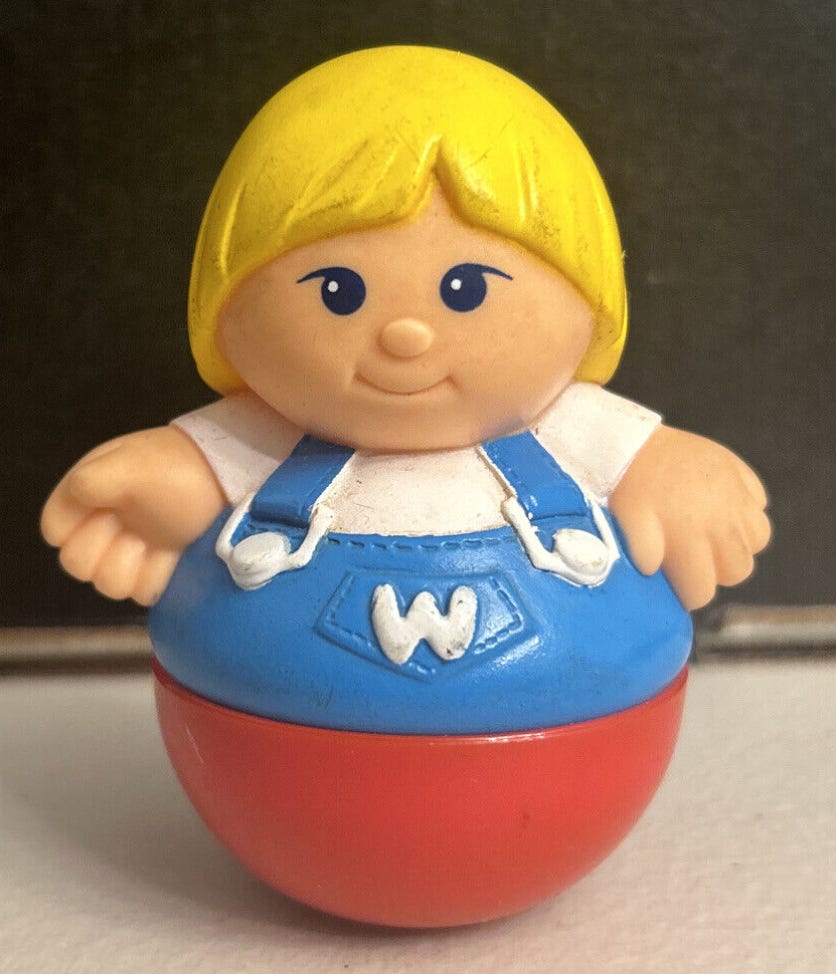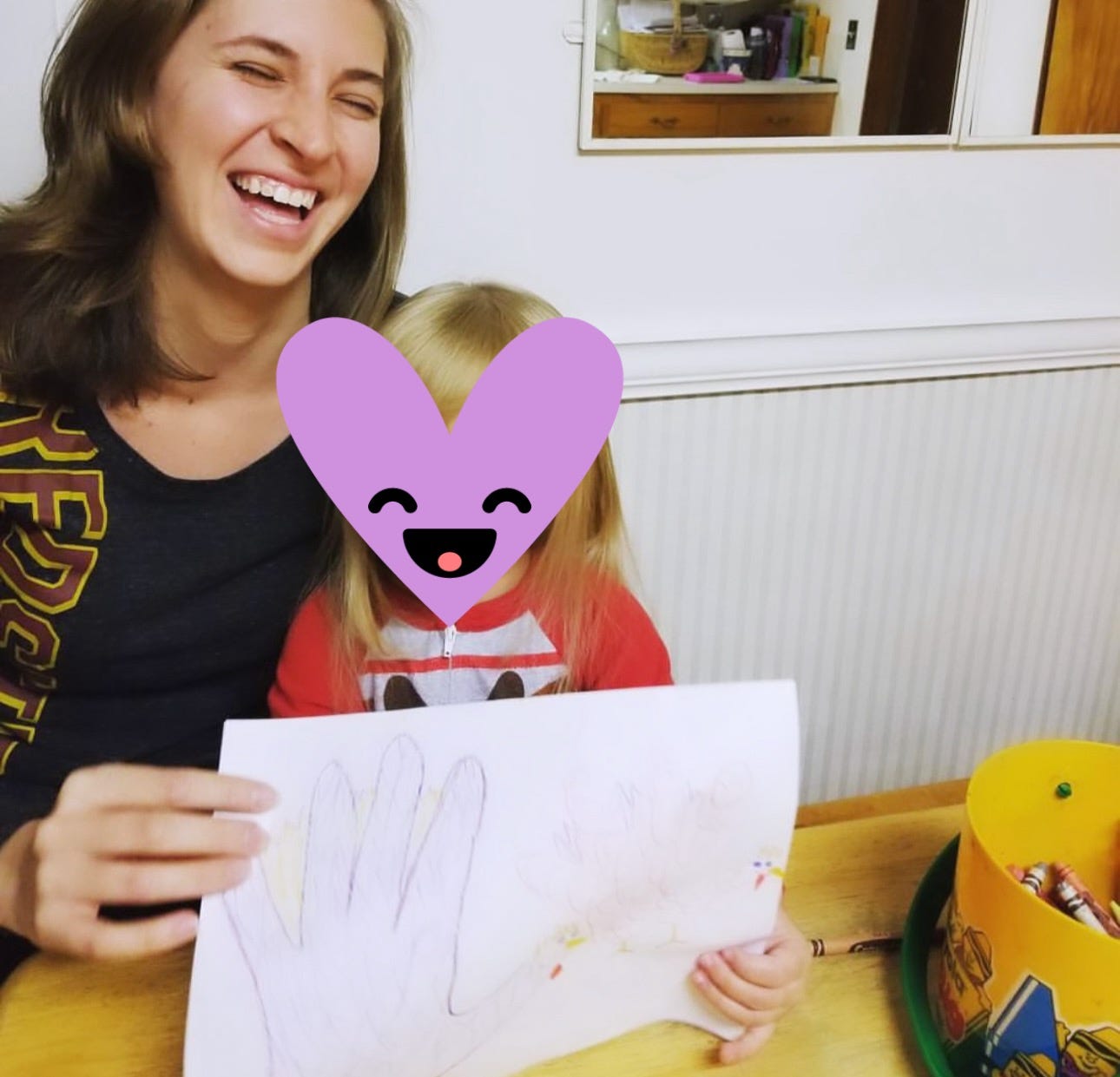Here’s two thoughts for this Thanksgiving evening that aren’t about family and how behavior, feelings, and even cultivated resilience can change when in family-iar environments… because I need a little time with that one.
Should
I was scrolling a depression group on Facebook and responding to posts (something I do to decompress - I’m not weird, you’re weird). I noticed a lot of the the word “should” in posts about the holiday.
“I should be happy.”
“I should be having fun.”
“I should be grateful.”
I’ve been trying to put a kibosh on the word “should” in my vocabulary.
Should: used to indicate obligation, duty, orcorrectness, typically whencriticizingsomeone's actions
I’ve found that should exists in my moments of shame, guilt, or insecurity. I use it in sentences when I am invalidating or at least questioning my own feelings. I use it when putting an extra layer of guilt on top of a real feeling. (I should feel good, but I feel bad - so now I feel even worse. Cool.) I use it in situations when I am questioning choosing someone else’s needs (whose?) over my own. I use it when I don’t trust my own convictions. I use it to ask persmission from a bunch of strangers or an unknown authority figure.
I’ve found that none of this serves me.
Plus it’s a weird question of authority. When we say should to ourselves, who are we implying that we are obligated to? Who is in charge of what we should do? Who has the right answer? What determines whether you should or not?
Sidenote: my mom said her “should”s aren’t the product of guilt, but instead inadequacy and I haven’t quite swallowed that one yet. Putting a pin there.
Replacing should
There is not an external authority figure in my life. My enneagram 8/aries/first born nature would never stand for that anyway. I am in charge.
If I am in charge, how do I determine what I do?
I believe in need and I believe in want. If “need” or “want” can replace “should,” then the thought has legs to stand on. If not, it’s just one of these inefficient Playskool toys with the round bottoms and I can giggle and move on.
In some ways, having an external authority figure might be easier. It removes some accountability for my own life. If “should” is outside myself, I don’t own the things that happen to me. Which takes some pressure off, but it also means I might not be living in alignment with my own values. Because maybe I haven’t even asked myself what they are.
If should is inside myself, my values determine how I make decisions.
Maybe should can crawl back into my dictionary when the authority I’m obligated to are the parts of me all sitting at my table with my values pinned on their bulletin board.
Gratitude
It’s Thanksgiving so it’s as good of a time as any to talk about gratitude.
Gratitude is a catch all miracle solution to depression from people who are not currently depressed. “Be positive! Focus on the good! Be grateful!”
It’s annoying and of course it works. I know it works. We all know it works. But for most people who tell you to do it, it comes pretty naturally.
But it’s just not always that easy when you’re in the pit and can’t see over the ledge.
For me, gratitude is just an act of noticing all of the good stuff. I am great at it when I was in a good place or a good mood or having a good day. I’m grateful for everything. I notice the clouds and how beautiful the blue sky is. I notice more kind, interesting, and funny interactions on the subway and in the world. I notice my friends’ and partner’s beautiful actions, words, and intentions. I notice my own strengths and appreciate them.
But when I am in the pit, the bits of beauty disappear for me. I find myself seeing the negative in the exact same subway seat I have seen beauty before. In the pit, gratitude is just a word. I can’t feel it. And so I thought it couldn’t possibly work.
My therapist at the time, back in good ol’ 2018, told me that if I actively surveil for good, I can create the good mood. And eventually it will rewire my brain to do it all of the time.
In every moment we decide whether the world is good or bad by choosing what we notice or how we react to it. Then at the end of the day we lay in bed, close our little eyes, and our brain uses these flashes of surveillance to quickly decide whether it was a good day or not. And the days add up to our lives.
Usually this is subconscious, but we can make it conscious. We can rewire our brains to notice things differently.
Most importantly (for in-the-pit-me at least) this way of finding gratitude doesn’t have to feel like anything. I didn’t have to feel grateful. I just had to choose what to look at. It could even be a game I played with myself. And then the good feelings would find me. And it might be safe to be happy one day. And the days would add up.
On the subway it was seeing the sweet kid reading aloud to his mother instead of glaring at the manspreader. At work, it was seeing the money I made instead of the project that went awry. In a conversation with a partner, it was seeing the effort to have a conversation instead of focusing on the one text that didn’t sit right. At the gym, it was focusing on the fact that I did 10 minutes of exercises that day instead of focusing on the fact that I ONLY did 10 minutes of exercise. It's this tree in my park.
Surveilling for good creates a world that feels safe. A world that feels safe is an easier one to be happy in. A world that feels safe is a world in which risks are easier to take.
I’m grateful that I learned that.
Did I just tell you about something you should maybe do too? Shoot!
Happy Thanksgiving, turkeys.







Two random thoughts (aside from this being a beautiful post that I appreciate).
First random thought: Your parts are sitting around a table. My parts tend to hang out around me while I am sitting on a deck chair in the middle of a clearing in the woods.
Second random thought: I avoid the word gratitude like the plague, because it has so often been used like a weapon and a means of comparison that hits particularly home to me and my marginalized people – people say they are grateful for their health, and other kinds of things that tend to translate into being grateful that they are not me. So the trick I am beginning to use (because I do try to journal every day using the five minute journal app) is to use the word appreciate instead of grateful. So far it seems to work.
I really like what you had to say about how shoulds put a question of to whose authority we are subject. I think the point you touch on in regards to not having to take accountability for when we don't like the outcome of our choices is really poignant.
Also, that's my favorite tree too.